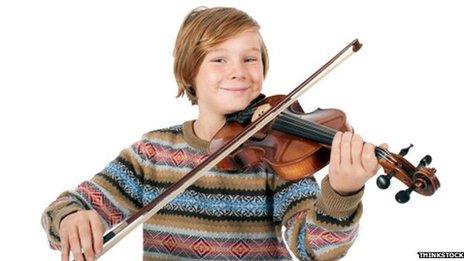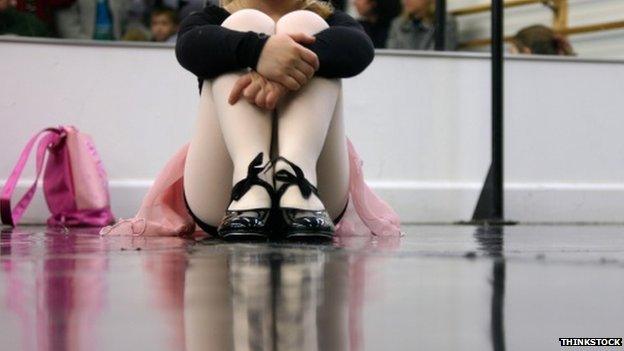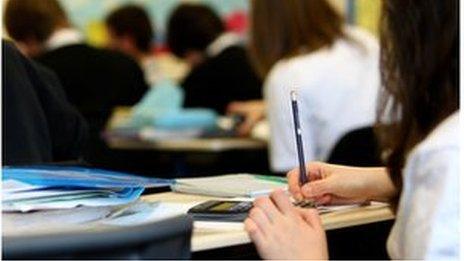Tuition and hobbies helping richer children
- Published

Music lessons can give children "cultural capital" which improves their prospects
Children from wealthier families gain a "substantial advantage" from tuition and extra-curricular activities, say researchers.
Lessons in dancing, sport and languages give children "another edge", says the Sutton Trust education charity.
Almost one in four young people have extra tuition, but it is least likely to be available among poor families.
"Inequalities in education do not stop after the school bell has sounded," said researcher Conor Ryan.
The study found that the richest families are much more likely to pay for extra lessons than the poorest - and the Sutton Trust wants poorer families to be given vouchers for tutors and after-school hobbies.
It suggests that part of the pupil premium, that is targeted at supporting poorer pupils, could be diverted to funding tuition.
'Persistent gap'
The Sutton Trust's annual Ipsos Mori survey of 11- to 16-year-olds shows 27% of the wealthiest pupils received private tutoring in the past year, compared with 15% from the pupils from the least affluent families.
The charity says for five years there has been a "persistent gap" in the rates of tuition for the richest and poorest families of at least 10 percentage points.
Private tuition can give long-term advantages, says the report, such as helping pupils get into selective schools and boosting exam grades.

Children from richer families are much more likely to take extra curricular classes
"This will likely make a big difference to their access to the most selective universities, and subsequently to the highest paying careers," says the charity report.
Researchers also examined how parents bought extra lessons, based on a living costs survey from the Office of National Statistics which asked 1,758 families if they had paid for extra curricular classes in the previous three months.
Analysis of the figures found 35% of households in top fifth of incomes had paid for classes for their children, compared with only 9% in the bottom fifth.
Families mentioned classes in crafts, dancing, music, drama, photography, painting, sports, keep-fit, yoga, DIY, car maintenance, creative writing and languages.
Social mobility
Mr Ryan, director of research at Sutton Trust says inequalities in tuition and hobbies are a cause for concern.
"While many schools offer a range of sporting and other activities outside regular school hours, there is still a substantial advantage available to those who can afford it.
"If we are serious about improving social mobility we must narrow the gap in educational opportunities outside of school as well as within the classroom."
Brian Lightman general secretary of the Association of School and College Leaders said schools had to think carefully about the most effective way to spend limited resources.
"In an ideal world, all students would have the same advantages and opportunities to help them succeed at school and in life.
"Good schools will make decisions based on evidence and experience of how best to use pupil premium funding to support students.
"There is no panacea or one-size-fits all solution."
- Published23 April 2014

- Published6 September 2013
- Published2 August 2013

- Published26 January 2013
